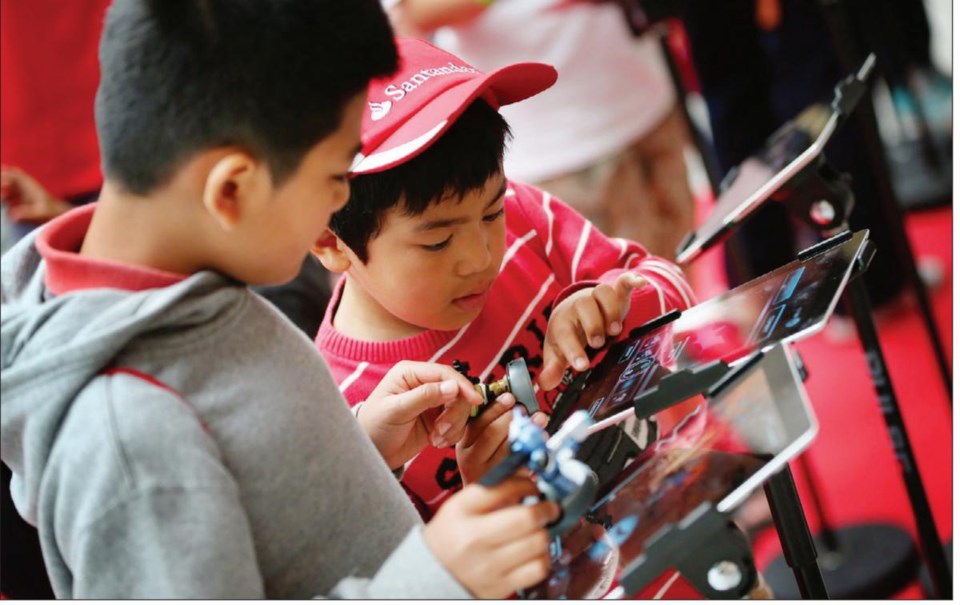Samsung had a "crisis of design" after the launch of the iPhone and bosses of the South Korean company were determined to cash in on the success of the revolutionary device, a lawyer for Apple said Tuesday.
The claim came during closing arguments at the multibillion-dollar patent trial involving the world's biggest smartphone companies, after last-minute talks between chief executives failed to resolve the dispute.
Apple argues that Samsung Electronics Co. should pay it $2.5 billion US for ripping off its iPhone and iPad technology.
Apple's lead lawyer, Harold McElhinny, told jurors Tuesday that Apple confronted Samsung about the alleged copying before filing its lawsuit last year.
"Instead of doing the right thing, Samsung decided to gin up claims of its own," McElhinny said of Samsung's counter claim seeking $399 million from Apple for allegedly using Samsung technology in making the iPhone and iPad.
Apple is also demanding that Samsung pull its most popular cellphones and computer tablets from the U.S. market.
McElhinny said Samsung has sold 22.7 million smartphones and tablets using stolen - "infringed" - Apple technology since June 2010 on sales of $8.16 billion.
"The damages in this case should be large because the infringement has been massive," he said.
Lawyers for Samsung were expected to deliver their closing arguments later.
Apple and Samsung combined account for more than half of global smartphone sales.
The jury of nine men and women could start deliberations today after hearing three weeks of testimony from technology experts, patent professionals and company executives.
Apple's damages demands, if awarded, would represent the largest patent verdict in the U.S. Last year, an appeals court overturned what had been the largest award to date - a $1.8 billion judgment against pharmaceutical company Abbott Laboratories.
Legal experts and Wall Street analysts have viewed Samsung as the underdog. Apple's headquarters is 10 miles from the courthouse and jurors were picked from the heart of Silicon Valley, where the company's late founder, Steve Jobs, is a revered technological pioneer.
Patent expert Alexander Poltorak said the case will likely boil down to whether jurors believe Samsung's products at issue look and feel almost identical to Apple's iPhone and iPad.
"Most jurors will probably say they look alike," said Poltorak, chief executive of General Patent Corp.
In June, U.S. District Judge Lucy Koh called Samsung's Galaxy 10.1 tablet computer "virtually indistinguishable" from Apple's iPad and banned its sale in the U.S. until the case is resolved.
"There was some evidence that Samsung altered its design to make its product look more like Apple's," Koh found two months before the trial started.
Samsung's battalion of lawyers has argued that many of Apple's claims of innovation are either obvious ideas or were actually stolen ideas from Sony Corp. and others. Experts called that line of argument a high-risk strategy because of Apple's reputation as an innovator.
"Saying Apple is a copyist is going to be a hard sell," said Ellen Brickman, a New York-based jury and trial consultant. "Apple changed the world when it came to computers. Apple changed the world when it came to phones."
Poltorak said a verdict in Apple's favour would cost Samsung a lot of money but would not dramatically disrupt the smartphone markets. He predicted that Samsung engineers would quickly redesign the company's smartphone and computer tablets to compete if Apple wins the lawsuit.
Apple lawyers argue there is almost no difference between Samsung's products and those of Apple, and presented Samsung's internal documents they say show it copied Apple's designs. Samsung lawyers countered that several other companies and inventors had previously developed much of the Apple technology at issue.
The U.S. trial is the latest skirmish between the two over product designs. The companies have been fighting in courts in Australia, the U.K. and Germany.
The case is one of about 50 lawsuits among myriad telecommunications companies jockeying for position in the burgeoning $219 billion market for smartphones and computer tablets.



